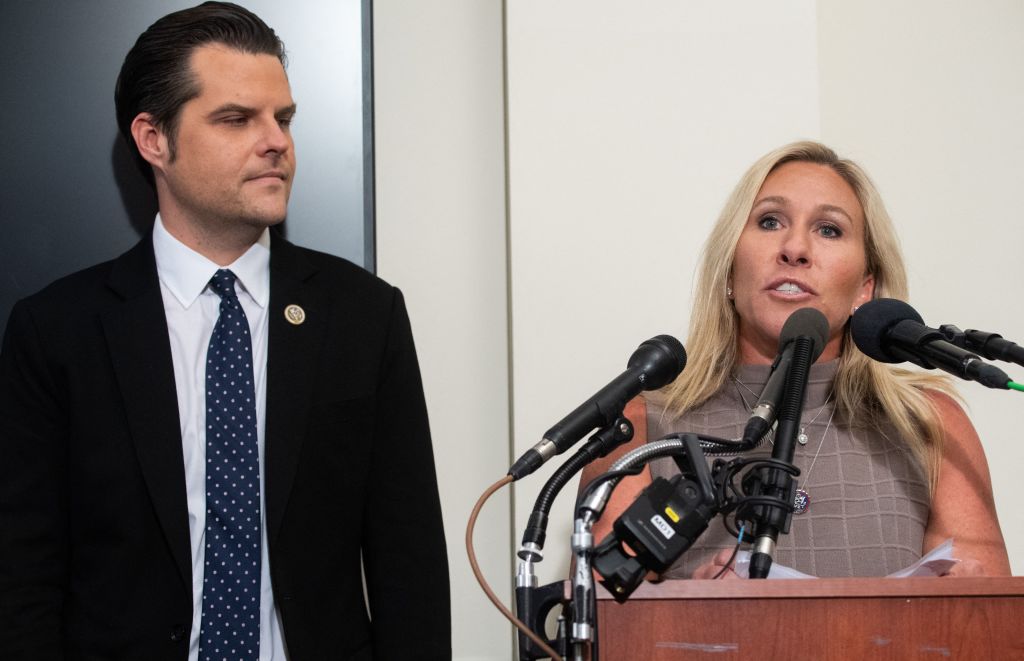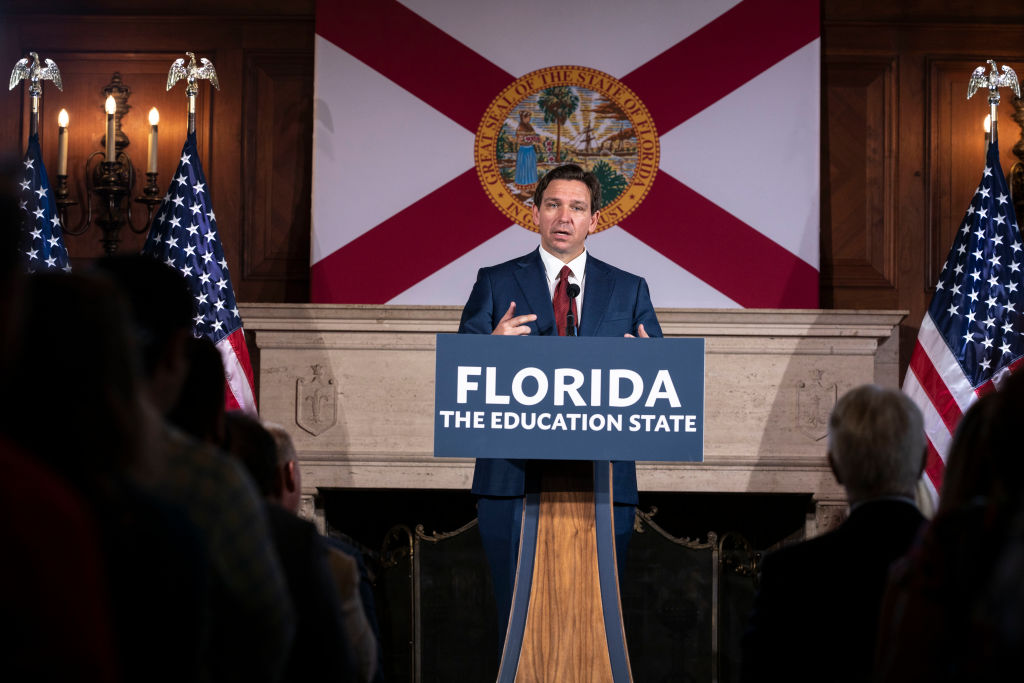Fortunately, liberty triumphed—this time.
The Big Tech Occupation

Technocrats are imposing foreign law on American jurisdictions.
Big Tech has infiltrated the American homeland and is imposing speech laws that resemble those of Europe, challenging the authority and longevity of the First Amendment. Although we share common ideals with other Western nations, we pursue and defend those ideals very differently. Nowhere is this more apparent than in our approach to speech.
It is important to understand how fundamentally different our country is from the rest of the world if we want to understand why Big Tech’s speech codes should not be inflicted on American citizens in American jurisdictions. Put another way, if the would-be monarchs of Silicon Valley get their way, their speech codes will ultimately undermine our American values of free speech and the First Amendment itself.
A Tale of Two Speeches
In America, the First Amendment expresses an absolutist viewpoint on speech: “Congress shall make no law...” (emphasis added). From there, the courts have developed a framework that governs speech. Not all speech is “protected” speech (e.g. fighting words and true threats), and we have standards that determine if, when, where, and how the government can limit speech. All told, American speech law can be quite complex, but philosophically it begins at that intransigent right: “Congress shall make no law.” This principle permeates the American mindset and is defended by our written and entrenched (i.e., difficult to change) Constitution.
Europe, however, begins from a qualified position and immediately seeks to balance speech with other competing interests. Despite aspirational language to the contrary, European law begins with the assumption that speech is a privilege, the contours of which can be defined and redefined by the government. Article 10 of the European Convention of Human Rights makes this clear.
1.Everyone has the right to freedom of expression. This right shall include freedom to hold opinions and to receive and impart information and ideas without interference by public authority and regardless of frontiers….
This sounds good until you read the second paragraph:
2. The exercise of these freedoms, since it carries with it duties and responsibilities, may be subject to such formalities, conditions, restrictions or penalties as are prescribed by law and are necessary in a democratic society, in the interests of national security, territorial integrity or public safety, for the prevention of disorder or crime, for the protection of health or morals, for the protection of the reputation or rights of others, for preventing the disclosure of information received in confidence, or for maintaining the authority and impartiality of the judiciary. (emphasis added)
The blunt fact is that most Europeans have freedom of speech at the discretion of their governments. Think about the wide differences of opinion there are on what speech restrictions are “necessary in a democratic society”! The European crusade against hate speech (a label that can be applied to almost any disfavored speech) is a perfect example of the abuse that can flourish when speech isn’t enshrined in a written and entrenched constitution, and is instead a discretionary standard subject to majority votes of prevailing legislatures.
The United Kingdom has yo-yoed back and forth on banning “insulting” speech as hate speech. The term has been added, dropped, and added again over the past decade. According to a 2013 article in the Guardian, when ‘insulting’ was included in the hate speech law “arrests and prosecutions rang[ed] from an Oxford student asking a police officer ‘Do you realise your horse is gay?’ which Thames Valley police described as homophobic and ‘offensive to people passing by’, to a 16-year-old holding up a placard that said ‘Scientology is a dangerous cult’.” Hate speech can mean almost anything, and in 2018, British police were rounding up and questioning people for tweets that criticized gender reassignment surgeries for children. As the culture slips, standards that can be amended by majority legislatures cannot defend speech rights.
The United States Constitution’s protection of speech has no tempering clause. Our court-created frameworks all seek to implement and obey the opening, sweeping directive of the First Amendment; we do not recognize a “hate speech” exception to the First Amendment; and our speech rights are certainly not at the mercy of every successive Congress’s whim. We can truly boast speech rights—and the ability to assert those rights against our government.
Enter Big Tech
The Big Tech internal speech codes are just like Europe’s broad, discretionary standards in that they permit a privileged few to determine what is and is not offensive or “dangerous” speech. For example, Facebook bans “hate speech,” including “white nationalist rhetoric” and “violent or dehumanizing speech, statements of inferiority, or calls for exclusion or segregation,” as well as other categories of offensive speech. Although this type of speech policing is contrary to the American principle that we have the liberty to offend, these definitions might sound otherwise uncontroversial and even attractive (after all, most decent people don’t want to be exposed to violent or dehumanizing speech). But of course, in addition to offending our spirit of free speech generally, the application of these standards has already proven to be both broad and biased, permitting companies to label all manner of political socially-conservative speech as dangerous or violent. There is wisdom and authentic freedom in America’s adherence to robust and “absolutist” protection of speech; there is opportunity for corruption, bias, and suffocating censorship lurking in the European approach.
Big Tech has effectively imported European speech law into the United States. Big Tech has created a massive internal framework that blankets the nation and imposes European-style standards in direct opposition to the robust, absolutist American rule.
Because Tech oligarchs control the primary thoroughfares of public discourse today—our new public squares of the digital age—they have effectively occupied our country and imposed foreign law on American citizens, restricting our fundamental liberty to gather and to exchange thoughts and ideas freely.
Big Tech censorship is also dangerous to the long-term stability of the First Amendment. Because digital interaction is so widespread, its European view of speech will slowly begin to chip away at Americans’ absolutist attitude toward speech. Big Tech’s speech codes are chilling and suppressing speech now, but ultimately, our collective attitude toward speech might change.
In debating cancel culture, Greg Lukianoff and Adam Goldstein have argued that nations without good free-speech law can still preserve a thriving culture of free speech—albeit a persecuted one—but, a culture that itself is not freedom-minded will not be free, no matter how good its law on speech is. Lukianoff and Goldstein have warned that if Americans’ attitude toward speech changes, our First Amendment will not protect us. Similarly, if Big Tech’s moralizing about and censoring of hate speech is accepted by too many Americans, it will influence and shift our culture’s attitude, and the First Amendment will fall. To maintain the potency of the First Amendment, the American public has to believe in and live its spirit.
Justice Scalia once remarked, “many Europeans like to think of Americans as their close cousins—albeit reckless, loudmouthed cousins they’re embarrassed to talk about at dinner parties. It is easy to forget, however, that the United States was settled primarily by people seeking, in one way or another, refuge from the ways of Europe.” Our freedoms are not equal.
Europe’s speech standards leave Europeans at the mercy of their ruling class. In America, the First Amendment (and the attitude it embodies), continues to provide Americans the strongest speech rights of any people on earth. Big Tech cannot be allowed to impose European speech codes in digital public squares within American jurisdictions. It is an affront to American sovereignty, and by demanding conformity to a European understanding of speech rights, Big Tech threatens to mold our culture’s perception of speech in a way that will undermine our independent attitude toward speech and even threaten the longevity of the First Amendment.
The American Mind presents a range of perspectives. Views are writers’ own and do not necessarily represent those of The Claremont Institute.
The American Mind is a publication of the Claremont Institute, a non-profit 501(c)(3) organization, dedicated to restoring the principles of the American Founding to their rightful, preeminent authority in our national life. Interested in supporting our work? Gifts to the Claremont Institute are tax-deductible.
The decay of the First Amendment is on display in Virginia.
Constitutional government demands a free but responsible media.
Freedom of association is as essential to the university’s mission as freedom of speech.
Taking back the woke Florida institution of “higher” learning.
Collusion between Big Tech and Western governments is a growing threat.






